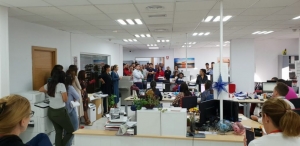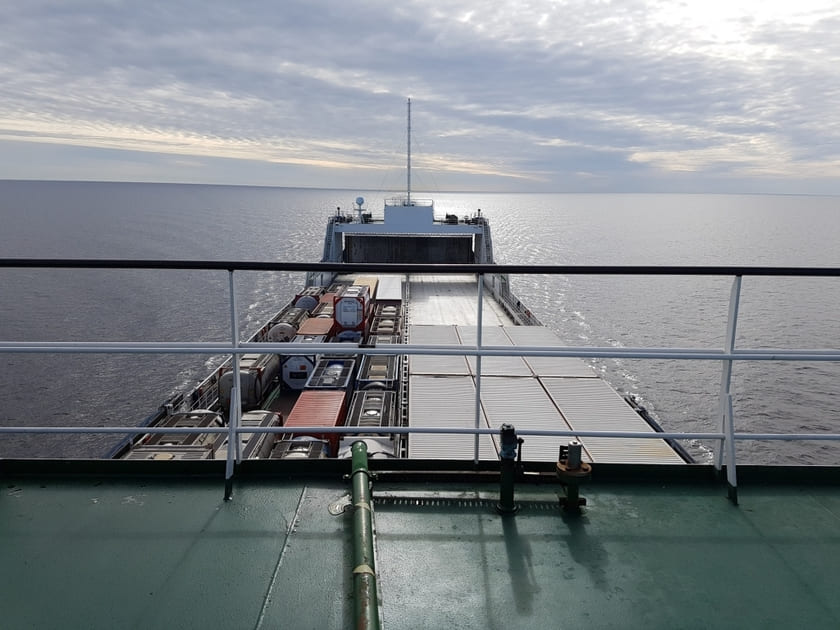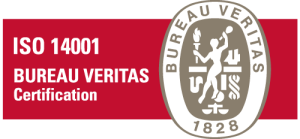In eComercio Agrario we interviewed Álvaro Partida López, Deputy Director & Head of Communications at Partida Logistics . Since he joined the family business, he has stood out for his contribution in the development of marketing tasks with the aim of establishing internal communication channels.
By: Barbara Aguayo Martínez, food journalist @BarbaraAguayoM3
Partida, the reference customs agency in southern Spain, operates from Algeciras, but in which other ports do they provide services, both national and international?
We are physically located in Algeciras, but we carry out the customs and para-customs procedures (health, soivre, phyto…) necessary to dispatch at any customs point in Spain. We have 99 years of experience in customs clearance.
We currently operate in Huelva, Seville, Cadiz, Almeria, Murcia, Valencia, Castellon, Alicante, Lleida, Zaragoza, Pamplona, Irun, Bilbao, Vigo, Madrid and Barcelona with goods transported in trucks and containers. However, in countries such as Portugal, Morocco, France, Belgium, United Kingdom, Germany and Italy we have partners that assist us in the operations that our customers have in the different European ports.
Right now we are working on a project to train European Customs Brokers how to clear at any customs location within the EU. For example, a Dutch agency will be able to clear goods through Spanish ports tomorrow and vice versa. It is a very ambitious project and it is in our plans to make the leap to other markets.
Partida not only provides customs and logistic services for goods transported by container and truck, but also gives full and complete advice to its customers. To which markets do you provide export advice?
Indeed, we have a Projects Department, headed by our colleague David Naranjo, a customs representative with more than 15 years of experience in Partida.
We offer advice on foreign trade and customs matters to both established and start-up companies. The main objective is to create a bond of trust by sharing with them the peculiarities of Customs and Finance with the legal/tax obligations involved in exporting/importing and, that we get to “speak the same language”. Mainly, our customers ask us for advice to exchange goods with Morocco, France, Germany, Netherlands, United Kingdom, USA and countries in Latin America and Asia.
In recent years, you have joined the “digitalization wave” by providing your customers with new tools. What do these new tools consist of and what objectives do they aim to achieve?
In this sense, we were looking for a software that would provide more and new functionalities to benefit the whole company as a whole. Since we made this leap in quality, we have been able to manage administrative (billing, accounting and finance) and operational tasks more efficiently.
Clearly, it was essential for customers to see that “we are on the wave”, that they enjoy tools to be able to see in real time the status of their goods at the ports and that they can have direct access to documentation. In short, we are more agile and transparent than ever.
With respect to the agri-food sector, what weight does this sector have within your business and what is required to provide a good service?
The agri-food sector has considerable weight and importance, accounting for around 75% of the total goods we dispatch.

Logistics Departure Team
The import department is divided into trucks (cargo from Morocco) and containers (from Latin America, South Africa, Kenya, etc.). The export departments have destinations in Africa, USA, Canada and Asia, and transit with goods from Morocco with direct destination to European countries and the UK. We are specialists in Fruit logistics with fruit and vegetable products for import, export and transit operations.
Managing this massive amount of goods movement requires extensive scheduling as well as a well-trained workforce and IT tools. However, even though we have all the best equipment and we are highly qualified in our day-to-day work, we also depend on the agility of the different agencies to obtain their conformity and release the goods. In this regard, the Port of Algeciras, Customs and para-customs agencies work from Monday to Sunday, being the only ones in Spain with these characteristics.
During the year 2021 and with the pandemic in the background, to what extent were commodity flows for the company affected? Did it involve any losses?
2021 has been a very positive year as we managed to improve on the 2020 figures despite the difficulties we are all aware of. The rapid but necessary technological changes that have occurred as a result of the pandemic and the trust of current and new clients have helped us to continue to differentiate ourselves in the sector and to continue to be a Customs Agency of reference in Spain.
With regard to losses, our day-to-day operations were not affected by the restrictions, since our activity is essential for the proper functioning of logistics chains. From my point of view, all of us involved in the chain are happy that recognition has finally been given to all the people and organizations that work in logistics.
To what extent has Brexit changed export relations with the UK?

Truck control at Partida Logistics
Brexit has added complexity to trade relations, added administrative and logistical tasks and raised costs. From one day to the next, the UK left Europe and borders emerged, which translates into customs formalities. For those organizations that did not trade goods with countries outside the EU it has been a much more tedious change than for those firms that did export/import into international markets.
Overnight, you went from issuing a simple delivery note to issuing a commercial invoice with more information for buying/selling goods to the UK, to processing customs and para-customs formalities both inbound and outbound and having to familiarize yourself with Incoterms to divide tasks and responsibilities between exporters and importers. Carriers became key players in achieving effective coordination and avoiding delays due to lack of documentation at the borders.
In short, Brexit is here to stay and the sooner companies become familiar with the changes, the better. And this has only just begun, from July 1, 2022, when the phytosanitary certificate comes into force, we will see more complexity than ever before. But we will be there to provide an agile and professional service.
Published in eComercio Agrario




